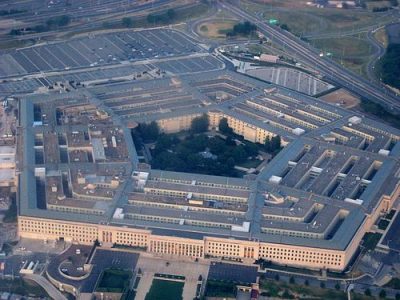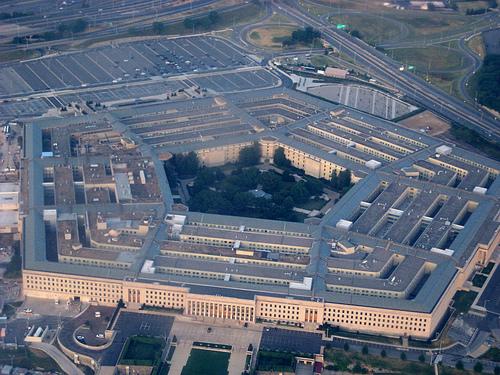 Spring budget season is almost over, and the House and Senate have once again placed parochial politics above budget discipline in their consideration of the Pentagon budget. The most extreme example came in the House version of the National Defense Authorization Act, which rejected virtually every cost-cutting measure put forward by the Pentagon, from base closings to retiring unneeded weapons systems. If the House’s actions aren’t reversed, they would bust the current budget caps to the tune of $50 billion over the next five years.
Spring budget season is almost over, and the House and Senate have once again placed parochial politics above budget discipline in their consideration of the Pentagon budget. The most extreme example came in the House version of the National Defense Authorization Act, which rejected virtually every cost-cutting measure put forward by the Pentagon, from base closings to retiring unneeded weapons systems. If the House’s actions aren’t reversed, they would bust the current budget caps to the tune of $50 billion over the next five years.
There was one place the House authorizers were willing to cut way back: a program designed to help communities adjust to defense downsizings. This is particularly ill-advised at a time when the Pentagon budget has been set on a path to come down from a war-time buildup that brought it to its highest levels since World War II.
While modest by historical terms, the defense build-down that is now underway will demand adjustments in the unrealistic spending plans Congress continues to authorize for the Pentagon. And the cuts that are coming will have impacts in scores of communities across the country.
Since the 1970s a small office within the Pentagon, the Office of Economic Adjustment, has offered planning grants and technical assistance to help these communities develop their own strategies to capitalize on existing economic strengths and adjust to postwar economic conditions. Once these strategies are in place, the OEA serves as a point of contact for impacted communities in accessing resources from other federal agencies to help with implementation of their plans. Just this week Ohio, Michigan and Indiana received a grant of more than $2.4 million to fund a regional Defense Manufacturing Assistance Program to address the loss of 3,900 defense-related jobs in those three states since 2012.
Most members of Congress want to base their judgments on Pentagon spending on what is needed to defend the country. But they also need to show defense-dependent communities, businesses and workers in their states and districts that they are watching out for their interests. The OEA’s programs give them a way to judge procurement spending accounts on their merits, while attending to the economic needs of their constituents.
Supporting the OEA does not mean that members of Congress don’t care about the existing jobs base. It just means that they want in addition to have a Plan B in place in the event of decisions that reduce Pentagon-related activities in their areas.
It’s troubling to watch the House voting to slash the OEA, while standing firm in supporting costly, unneeded sacred cows like the F-35 combat aircraft. Even slightly slowing the pace of the F-35 program would pay for the OEA’s programs many times over.
The F-35 — the Pentagon’s most expensive weapons program ever undertaken — is a poster child of waste. Current cost estimates for building and maintaining the plane: roughly $1.4 trillion over its lifetime. It has more than doubled in price since it went into development, and it has had numerous high profile failures, from cracked wings to unresolved software problems. It is likely to perform many of its assigned tasks less effectively than current generation aircraft. An Air Force far superior to any other should be in no rush to build over 2,400 F-35s.
The F-35 merely tops the House’s list of unnecessary expenditures. It rejected plans to delay the refueling of an aircraft carrier at a savings of over $800 million — more than ten times the cut proposed for the OEA. It attempts to block the closure of excess military bases, stop the administration from reducing the size of the Army, and prevent the Air Force from retiring the U-2 spy plane, even as it funds Global Hawk drones to do the same job. And the list goes on.
The common thread in all of these actions is a state of denial about the trends in Pentagon spending. It will come down this year, and under current law it will stabilize at levels considerably lower than what the Pentagon’s overly ambitious plans will cost.
Funding programs that will help communities make the transition to more diversified economies that can weather reductions in Pentagon spending will make it easier to craft budgets that put security concerns above pork barrel politics. When the House and Senate put together a final Pentagon budget proposal later this year, funding for OEA’s crucial programs should be restored.
Miriam Pemberton is a research fellow at the Institute for Policy Studies. William D. Hartung directs the Arms and Security Project at the Center for International Policy.
This post originally appeared in Roll Call.
